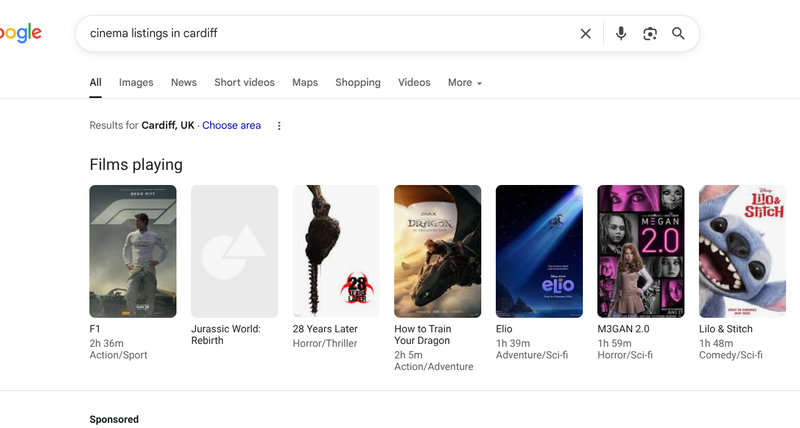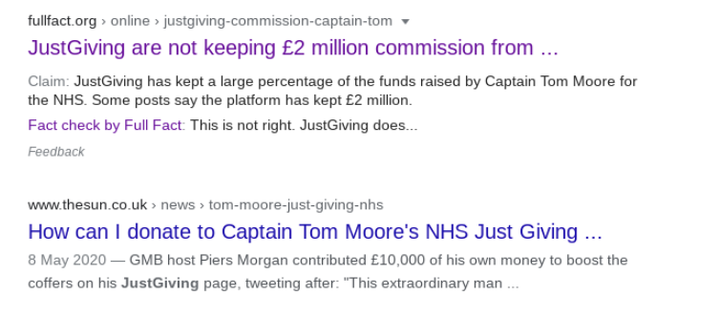The web just got a little harder to trust
In a change buried in a little-known technical blog, Google has announced that it will abandon a key element of its tagging system for fact checks, effectively de-prioritising this content and making it harder for people to access reliable information.
For the last 10 years, fact checkers around the world have quietly been working on what is probably the largest structured data journalism project ever created. The project, called ClaimReview, is part of the plumbing of the internet. ClaimReview is a tagging system that lets search engines, apps and social media platforms find fact checks and show them in other places, like newsfeed or search results.
This is part of the wider Schema.org set of standards, such as Movie, Local business, or Recipe, which ensure that when you search for something online, you get specific, contextualised results.

To be part of this, websites can add some code behind the scenes to explain what they are publishing and platforms like Google can read these signals and choose to show the content differently to a normal search results page.
Until June this year, the same thing happened for fact checks. Across Google search results, a fact check was shown differently to other results. It was more subtle than some other versions of search results doing the same thing, but it offered fact checks on the news.google website, and vitally in Google search results. Users would see context about the claim, as well as a conclusion, linked to an individual fact checking organisation.

These have now been replaced with much more generic results which don’t show the context and omit the conclusion, creating a more confusing and potentially misleading result.
Join 72,953 people who trust us to check the facts
Sign up to get weekly updates on politics, immigration, health and more.
Subscribe to weekly email newsletters from Full Fact for updates on politics, immigration, health and more. Our fact checks are free to read but not to produce, so you will also get occasional emails about fundraising and other ways you can help. You can unsubscribe at any time. For more information about how we use your data see our Privacy Policy.

The system has been used by independent fact checkers around the world since 2015 and produced over 200,000 fact checks. Full Fact has long championed this standard and with the backing of Google created an open source wordpress plugin to help support its wider adoption. We have also contributed to the schema.org website with ideas and thoughts for how the standard could be enhanced.
Reporting as part of the European Commission’s Digital Services Act indicated that fact checks had been seen over 120 million times in the EU in a six month reporting period in 2024. Google had very recently been presenting this work in a positive light: "fact-check articles in Google search results help provide context and information to users. Google Search relies on machine-readable ClaimReview markup on websites to enhance search results for fact-check articles with 'rich snippets', to make it easy for users to understand at a glance what is being fact-checked and what the fact-checker’s assessment is."
Google has seldom published usage numbers, but in 2019 said that ClaimReview fact checks had been seen billions of times. "[T]hese fact checks appear more than 11 million times a day in Search results globally and in Google News in five countries (Brazil, France, India, U.K. and U.S.). That adds up to roughly 4 billion impressions a year."
For our users, it means we now risk being just another result, particularly as AI search Overviews begin to push high quality website results further down the page. The work we have put into ensuring we explain how and why we come to a conclusion is thrown into the mix with a hodgepodge of other websites, and the internet becomes harder to trust.
We do not know why Google has taken this choice, or why it is happening now. Fact checkers were given no warning of the change and, as the first responders of the internet, we are once again left trying to tidy up. Google, like all platforms, is responding to the twin pressures of the race to develop AI generated content—including its own use in search results—and the pressures from the US administration to weaken moderation policies and practices, supposedly to protect freedom of speech. Google’s decision follows a change announced in January by social media company Meta that it would end its third party fact checking initiative in the US and eventually worldwide, which Full Fact said would have a “chilling effect” around the world.
Either way, anyone looking for good information will now have a more difficult time: quite the opposite outcome of Google’s stated intention to simplify search results.
Full disclosure:
From 2019 to 2025 Full Fact received funding from Google.org to support the development of technical tools to help fact checkers identify the most important things to fact check, find new repeats of things they have previously checked, and help speed up the process of fact checking. Full Fact received funding from Facebook in 2019 to deliver training to fact checkers to support takeup of ClaimReview and resolve related technical issues. All our funding is listed on the Full Fact website https://fullfact.org/about/funding/